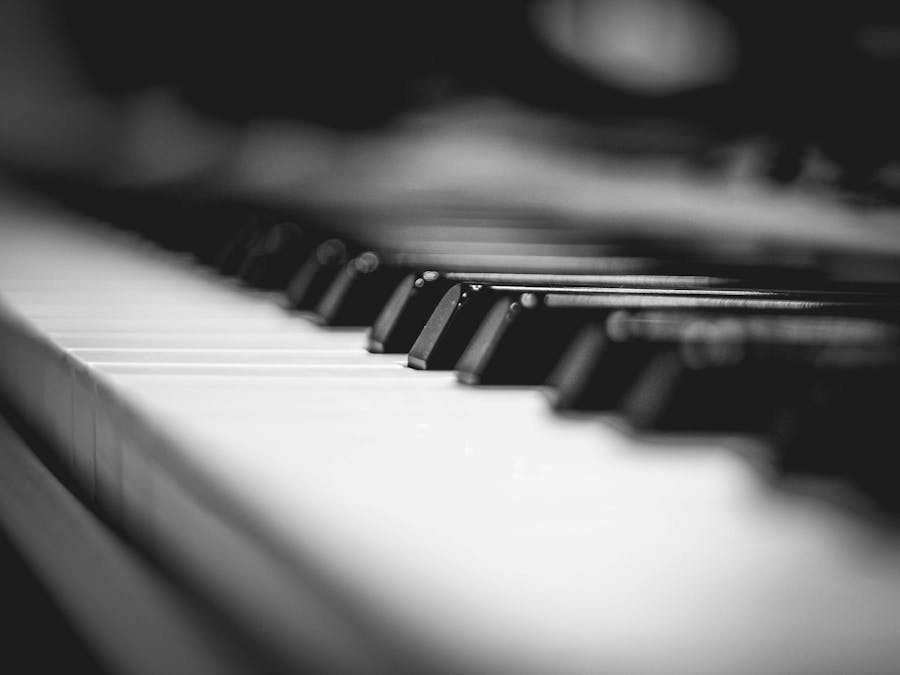 Piano Guidance
Piano Guidance
 Piano Guidance
Piano Guidance

 Photo: Patrick Case
Photo: Patrick Case
Music training promotes neuroplasticity. Neuroplasticity is the brain's ability to change throughout life. The Hebbian principle (neurons that fire together wire together) is what underlies it. The more you engage in any activity, the more consistently neurons are firing together, which results in stronger connections.

Six ways to end music class #1: Closing greetings. A simple but fun way to say goodbye to your students is to sing goodbye to them! ... #2:...
Read More »
The oboe just might be the hardest instrument to play because it can take significant time — even years — for a player to produce a musical sound....
Read More »Music, like mathematics, is a universal language. We can communicate a variety of emotions and themes that touch the very depths of our soul with the vigorous movement of air through a trumpet or the tender touch of fingers on a keyboard. Musicians (both professional and amateur) are at a unique advantage because they not only have the opportunity to communicate universally but also to improve their brain health. Your brain will thank you for being a musician for five reasons: 1. Music training promotes neuroplasticity. Neuroplasticity is the brain’s ability to change throughout life. The Hebbian principle (neurons that fire together wire together) is what underlies it. The more you engage in any activity, the more consistently neurons are firing together, which results in stronger connections. What is unique about music training is its capacity to induce neuroplastic changes in all areas of the brain. You use your occipital lobe to read and interpret pitches and rhythm; your temporal lobe to process sound; your frontal lobe to attend to the music, inhibit irrelevant distractions and remember what you just played; and your parietal lobe to integrate all of the incoming sensory information. 2. Music training improves cognitive abilities. Studies have shown that music training improves cognitive abilities (e.g., working memory, attention and inhibition) across our life span. This has been shown with both short-term and long-term music training. Because playing an instrument requires many different areas of the brain, it strengthens a variety of neuronal connections. This allows for an increase in signal efficiency (that is, how quickly neurons communicate with each other across the brain), which may be why musicians may perform better in cognitive tasks than non-musicians. 3. Music training may promote healthy aging of the brain. Studies show that musicians have an advantage in maintaining their cognitive abilities during the aging process. This includes tasks that involve executive functioning and short-term memory. Older musicians have other advantages as well. One study showed that ability to filter out irrelevant environmental stimuli (i.e., focus) was more intact in older musicians, and their brain activity reflected this advantage. Another has shown older musicians are able to hear more clearly in the presence of background noise. And there are benefits from both long-term and short-term training. 4. Music training is beneficial for overall health. A recent study has shown that group musical activities are potential ways to maintain physical and psychological health. For example, a lowered risk of dementia has been associated with playing musical instruments. Other studies have shown that playing keyboard and drums could improve fine and gross motor skills in stroke patients. These benefits were accompanied by increased brain activity and improved connectivity and function of brain areas responsible for controlling movement.

This is a reminder and reflection of the vision they have of themselves and their life. In all probability, music touches our souls so deeply...
Read More »
A healthy voice requires a strong body with generally good muscle tone and endurance. So plan to eat a balance of protein, fruits and vegetables,...
Read More »A recent study has even shown that recreational music making (RMM) has been shown to be effective at altering gene expression involved in the stress response. This shows that RMM may be more effective than quiet reading at ameliorating stress in a clinical setting. Although more research into this area needs to be completed, it seems that music making and training are beneficial to physical and psychological health. 5. Music training is a rewarding activity. Most importantly, making music is something most people enjoy. Your brain is more apt to learn if an activity is inherently rewarding and motivating. Studies have shown that listening to music is a rewarding experience in and of itself, activating brain structures involved in reward processing, including the nucleus accumbens, ventral tegmental area, hypothalamus and insula. Scientists have even begin modulating music reward sensitivity in the brain with using transcranial magnetic stimulation. Sensitizing or desensitizing these brain areas shows causal evidence that these circuits are involved in the enjoyment and motivation of music. Furthermore, a recent study has even shown that exposing rats to melodic music increases dopamine and serotonin in the forebrain, which is linked to reward. In short, making music is truly a whole-brain workout. Although those who begin music training at a young age seem to display the greatest neuroplastic benefits, research shows it is never too late to learn to play an instrument. More research is needed to more fully understand the effect of music training on the brain throughout life; this is something the National Institutes of Health has recognized. Meanwhile, go learn to play a Bach prelude or Heart and Soul. I promise, your brain will thank you.

A good upright is better than a poor grand Indeed, there are fine uprights several times more costly than lower quality grands. It is not merely...
Read More »
Are pianists smart? Because making music involves crafting and understanding a songs emotional content and message, musicians often have higher...
Read More »
Your keyboard should be at a height that allows your elbows to be bent about 90 degrees and close to your sides. Many keyboards and keyboard trays...
Read More »
We've asked musicians, we've scoured the internet and our music library - these are the hardest pieces of classical music out there. Kaikhosru...
Read More »